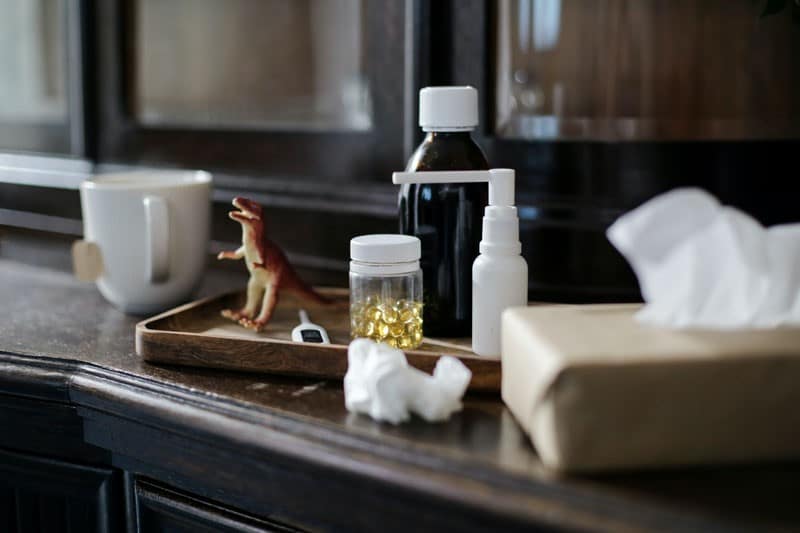
How to Reduce Humidity in a Basement?
Table of Contents According to many homeowners, the basement is usually the most humid area in the house since it
Here are the symptoms of asthma.
Wheezing refers to the production of a whistling sound when breathing. If your loved one has asthma, this is a sign that their airways are narrowed, and they are struggling to take in air. In case you have high humidity in your home, these symptoms can become more frequent.
Breathlessness is an uncomfortable feeling that one cannot breathe properly. People living with asthma will feel winded and short of breath when they are exposed to high humidity.
Chest tightness feels like a band around your chests that makes it difficult to breathe.
Many things can cause these symptoms, including anxiety, anemia, chest infection, or allergies. However, if these symptoms are recurrent and are worse at night and early morning, you probably have asthma. If you are living with asthma, high humidity in your house can result in frequent asthmatic attacks.
Asthmatic attacks refer to worsening of symptoms for a short time. You may have a cough, wheezing, and shortness of breath that gets worse suddenly. They are characterized by the inability to speak, eat or sleep due to breathlessness, rapid breathing, fast heartbeat, dizziness, and confusion. If patients do not receive immediate medical attention, they may faint or have blue fingers and lips.

The cause of asthma is unknown, but some scientists believe that genetics and pollution can cause asthma. If you have allergies, bronchitis, or your mother smoked while pregnant, you are at risk of developing asthma. Children born before 37 weeks or those with a low birth weight are also likely to develop asthma.
Asthmatic attacks can be triggered by temperature changes, cold air, and increased humidity. As mentioned above, high humidity traps dust particles and mold, which affects your ability to breathe. Pollution, smoke, mold, fumes, pollen, animal fur, and other allergens can trigger an asthmatic attack too. Apart from these, exercise and being emotional can also result in an asthmatic attack.
To diagnose asthma, your doctor will ask about your symptoms and their frequency. They may also carry out several tests, including peak flow tests and spirometry.
According to the NHS , asthma can be managed using inhalers and tablets. With the right course of treatment, people living with asthma can live comfortable lives.

People living with asthma may use different types of inhalers to manage the condition. An inhaler contains medicine either in power or aerosol form that a patient inhales into their lungs. These open up airways and include reliever inhalers, preventer inhalers, and combination inhalers.
Reliever inhalers help relieve the symptoms when they occur, while preventer inhalers prevent the occurrence of symptoms. Preventive inhalers usually contain steroid medicines. Combination inhalers are prescribed to patients for whom the preventer and reliever inhalers do not work.
There are several tablets that doctors prescribe to their patients with asthma. These tablets help prevent the occurrence of asthmatic attacks. They include steroid tablets and Theophylline. Bear in mind that these treatments have side effects.
There are also injections that doctors give their patients that help control the occurrence of asthmatic attacks. These include Fansera, mepolizumab, and Omalizumab. Bear in mind that these are prescription-only medications, and not everyone who has asthma can take them.
Apart from tablets and inhalers, people who have asthma can undergo a surgical procedure called bronchial thermoplasty. The doctor uses a flexible tube to pump heat into the bronchial muscles and stop them from narrowing. It is a safe procedure that has helped many people that have severe asthma.
These treatments include acupuncture, breathing exercises, dietary supplements, manual therapies, ionizers, and Chinese herbal medicine.
Humidity can make asthma worse, as Deborah Whitherspoon, Ph.D., R.N., CRNA explains in her Healthline article. Here are some of the reasons why your asthma symptoms become worse in high humidity.
You may have noticed that outdoor air is harder to breathe when it is humid and hot than when the weather is cool and mild. The moisture in the air holds pollutants, dust, mold, and other particles. These can irritate your airways and lead to an asthmatic attack. Bear in mind that things like fungi thrive in high humidity and are terrible for people who have asthma.
When the air is hot, breathing can cause your airways to become narrow. If you have asthma, you are going to feel breathless. It is essential to mention that sudden weather changes can trigger asthmatic attacks. For example, leaving an air-conditioned room and walking out in the street can give you an asthmatic attack.
When it is humid, the air is heavy and harder to breathe in. If this happens, your body temperature goes up and which makes you sweat, resulting in dehydration. That can worsen your asthma symptoms.
You can decrease your house humidity by placing fans in the bathroom and the kitchen. The fans ensure that moisture does not escape into other parts of the house and increase your house humidity. It will also reduce humidity levels in the kitchen. You can also place exhaust fans in the attic and other cramped areas of your house.
You can lower the humidity in your home by opening the windows. If you live in a city where the air is polluted, you may have to buy an air conditioner.
If you have long hot baths or showers, it will increase the humidity in your house. It is also crucial to avoid hanging clothes that are wet indoors as that will increase the amount of lint, detergent, and fabric conditioner in the air. That can lead to an asthmatic attack when inhaled.
Venting your clothes dryer indoors will warm your home and help reduce energy costs. It will also increase humidity in your home and make your life much harder. It can also increase pollution in your home and worsen your asthma symptoms.
If your gutters are clogged or damaged, they may hold water. That water could seep into your roof and walls. In case your downspouts are damaged, the water will pool around your house and seep into your foundation. These will create rising dampness which will raise house humidity levels.
House humidity can adversely affect people living with asthma. Asthma is a severe respiratory condition that affects 7.6% of people worldwide. You can use ThermoPro’s hygrometer to monitor humidity in your home. Taking the above steps will help reduce home humidity and make the air more breathable.

Table of Contents According to many homeowners, the basement is usually the most humid area in the house since it

Table of Contents High humidity inside your home can cause mold growth, and can be harmful for both you and
Sign up to our newsletter to receive amazing discounts, and be notified of exclusive recipes, new product launches, promotions, and more!
You have successfully joined our newsletter. Use this coupon code to get 10% off your next order: newsletter10
Privacy Policy | Terms of Service | Warranty and Refund | EU Declaration of Conformity | Copyright © 2024 ThermoPro

We truly pride ourselves on a hassle-free, friendly customer support experience with a team that’s available 5 days a week from 8:00 am to 6:00 pm EST. Rest assured if you contact us by email, phone, or online chat, you’ll be speaking to a native speaker in your spoken language.
The customer service team is always listening, taking notes, and quantifying complaints to ensure our products are continually improved. Due to selling directly to you, the customer, via Amazon, we can use product reviews to help us improve our existing products or help further development of new products.


Our warranty coverage for our products is the backbone of our company and we’re capable of offering such a robust warranty is that we believe in our product quality due to our feedback based design philosophy and if anything does happen, we’ll stand behind our products. This also enables our customer support to team deliver continuously great experiences.